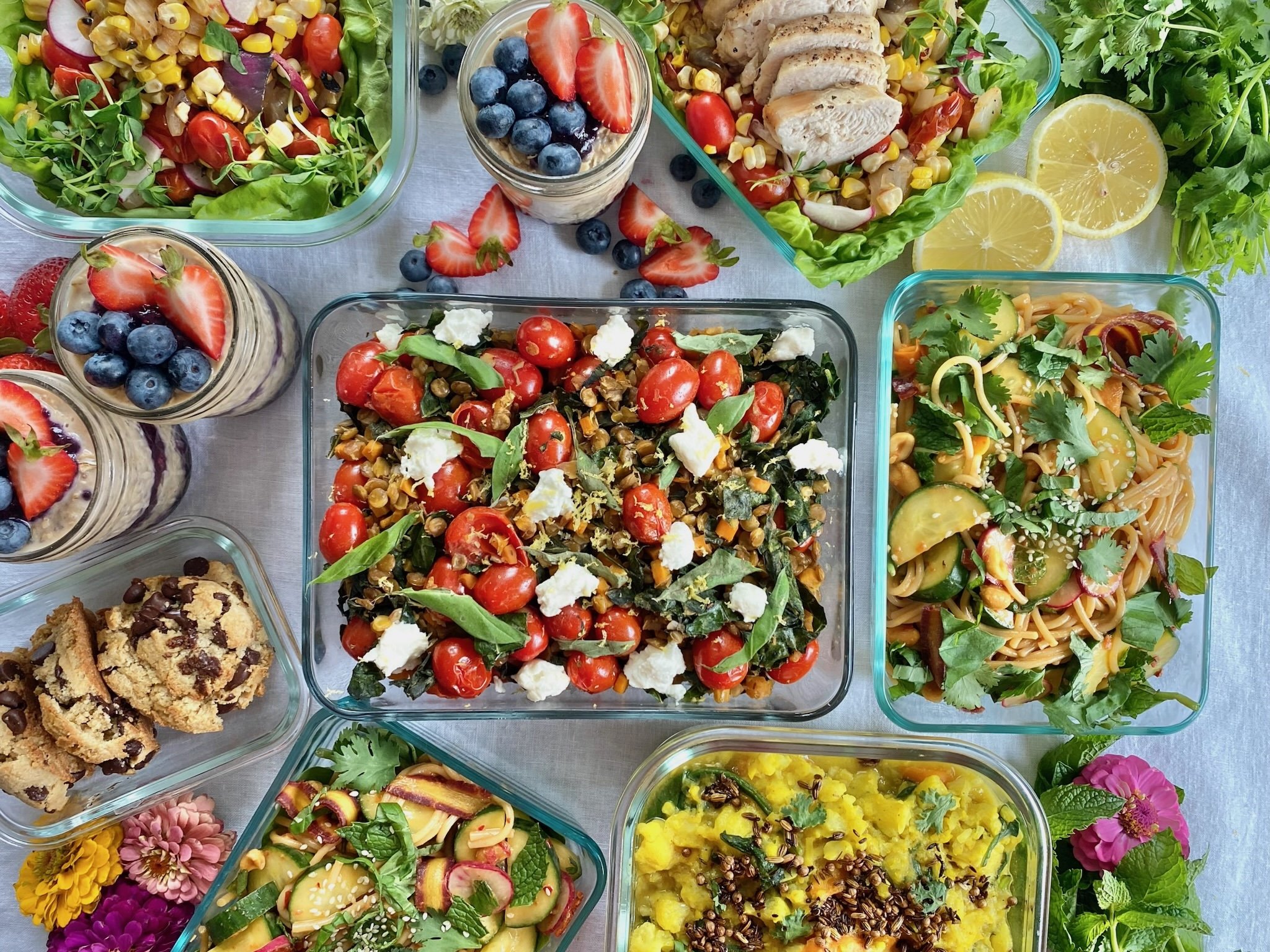A Guide To Postpartum Eating
First and foremost I would like to start with the honest notion of prior to having my first baby I would cook and give my clients foods that were only on my “embrace more of” list, however after having my first baby I want to say, nothing is off limits, do what feels right for you. If your breast feeding take cues from your baby on what makes him or her more gassy or fussy. Have that extra cup of coffee, Lord knows you need it, have a limitless mindset because the noise of the world will make you second guess every decision you make as a mom.
With that in mind, after diving deep into hormonal health courses, countless books, and hands-on experience cooking for new moms alongside doulas and baby nurses, I’ve come to fully embrace the tradition of the first forty days. Rooted in Chinese culture and many others, this practice encourages slowing down during the postpartum period, prioritizing rest, and nourishing the body with slow-cooked meals, easily digestible foods, ample protein, and supportive complex carbohydrates and vegetables.
The First Forty Days: A Time-Honored Tradition
This is a period that should emphasize rest to restore balance and strength.
Foods to Embrace
Warming Spices: Spices like cinnamon, cumin, ginger, cloves, turmeric, and fennel not only enhance flavor but also support digestion and circulation. Ginger, in particular, is great for its warming properties and ability to dispel "wind" accumulated during pregnancy.
Slow-Cooked and Moist-Cooked Dishes: Meals like stews, soups, braised meats, and bone broths are gentle on the digestive system and provide sustained energy. These preparations align with Traditional Chinese Medicine (TCM) principles, which advocate for warm, easily digestible foods to support postpartum recovery.
Easily Digestible Foods: White rice, leafy greens, mushrooms, quinoa, applesauce, and yogurt are gentle on the stomach, aiding digestion during this transitional period. These foods strengthen the spleen and stomach, promoting efficient nutrient absorption.
Nutrient-Dense Options: Incorporate peanut butter, flax seeds, whole oats, fish, avocados, coconut, and sesame seeds. These foods provide essential fats and proteins crucial for healing and energy. Omega-3 fatty acids, abundant in fish and flax seeds, have been linked to reduced postpartum depression symptoms.
Foods to Limit
Raw Fruits and Vegetables: These can be harder to digest postpartum. Cooking vegetables breaks down fiber, making them gentler on the digestive tract.
Heavy Dairy Products: Items like ice cream, milk, cream cheese, and sour cream may contribute to digestive discomfort and are best consumed in moderation. Some traditional practices suggest limiting dairy to prevent mucus production and digestive sluggishness.
Cruciferous Vegetables: Broccoli, Brussels sprouts, cabbage, and cauliflower can cause gas and bloating, potentially affecting both mother and baby.
Spicy Foods: Onions, garlic, spicy seasonings, and hot sauces can sometimes cause digestive discomfort or irritate a baby’s digestive system if breastfeeding. Some traditional postpartum diets recommend reducing or avoiding overly spicy foods.
Caffeine and Alcohol: While moderate caffeine intake is generally acceptable, excessive consumption can lead to infant irritability. Alcohol should be limited, as it can affect milk production and infant development.
Processed and Fried Foods: These are often low in nutrients and can impede recovery. Opting for whole, minimally processed foods supports healing and energy levels.
Postpartum Meal Services: Supporting New Mothers
One of my cherished offerings is the postpartum meal service, designed to provide meals rich in protein, iron, and calcium. Ingredients like lean meats, dark leafy greens, healthy fats, fruits, vegetables, herbs, nuts, and seeds are thoughtfully incorporated. This approach draws inspiration from Ayurvedic traditions and the Chinese practice of confinement, both emphasizing specific foods to promote healing and restore balance.
Menus are crafted seasonally, selecting ingredients traditionally believed to support postpartum recovery. Each weekly package includes lactation snacks to enhance milk production and homemade shiitake broth for nourishment.



